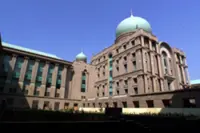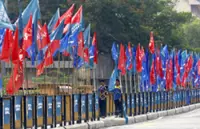PUTRAJAYA: All government projects in East Malaysia below the budget of RM50mil will now be decided by the state governments of Sabah and Sarawak themselves and need not go through the Federal Government, says Datuk Seri Anwar Ibrahim.
The Prime Minister said this in a first step to show that the government was serious in committing to the Malaysian Agreement 1963 (MA63).





